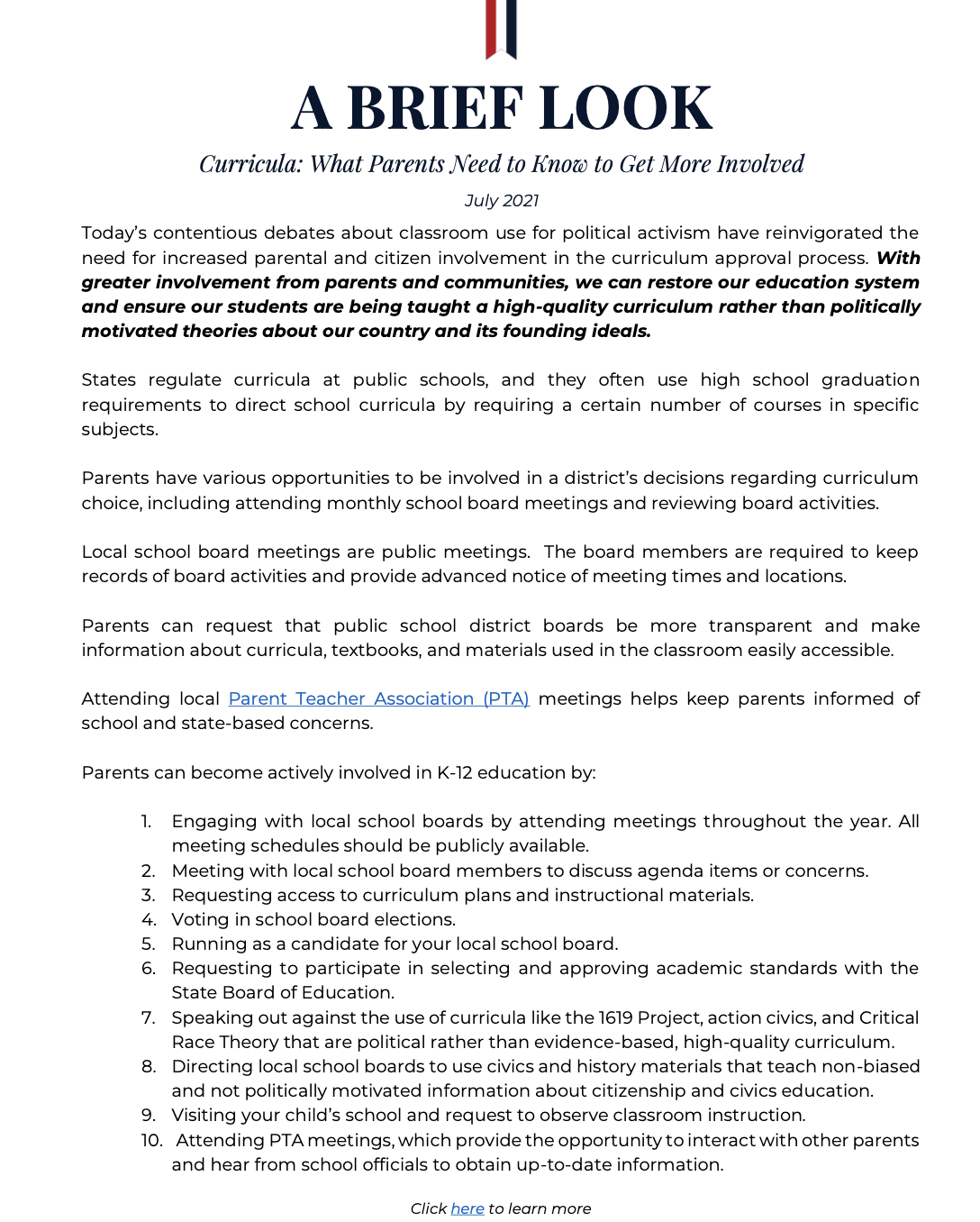A Brief Look: Curricula: What Parents Need to Know to Get More Involved
Today’s contentious debates about classroom use for political activism have reinvigorated the need for increased parental and citizen involvement in the curriculum approval process. With greater involvement from parents and communities, we can restore our education system and ensure our students are being taught a high-quality curriculum rather than politically motivated theories about our country and its founding ideals.
States regulate curricula at public schools, and they often use high school graduation requirements to direct school curricula by requiring a certain number of courses in specific subjects.
Parents have various opportunities to be involved in a district’s decisions regarding curriculum choice, including attending monthly school board meetings and reviewing board activities.
Local school board meetings are public meetings. The board members are required to keep records of board activities and provide advanced notice of meeting times and locations.
Parents can request that public school district boards be more transparent and make information about curricula, textbooks, and materials used in the classroom easily accessible.
Attending local Parent Teacher Association (PTA) meetings helps keep parents informed of school and state-based concerns.
Parents can become actively involved in K-12 education by:
- Engaging with local school boards by attending meetings throughout the year. All meeting schedules should be publicly available.
- Meeting with local school board members to discuss agenda items or concerns.
- Requesting access to curriculum plans and instructional materials.
- Voting in school board elections.
- Running as a candidate for your local school board.
- Requesting to participate in selecting and approving academic standards with the State Board of Education.
- Speaking out against the use of curricula like the 1619 Project, action civics, and Critical Race Theory that are political rather than evidence-based, high-quality curriculum.
- Directing local school boards to use civics and history materials that teach non-biased and not politically motivated information about citizenship and civics education.
- Visiting your child’s school and request to observe classroom instruction.
- Attending PTA meetings, which provide the opportunity to interact with other parents and hear from school officials to obtain up-to-date information
